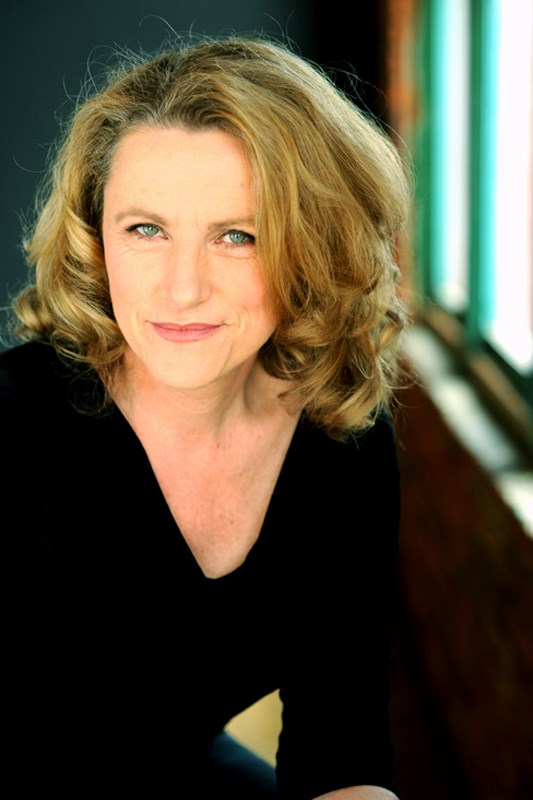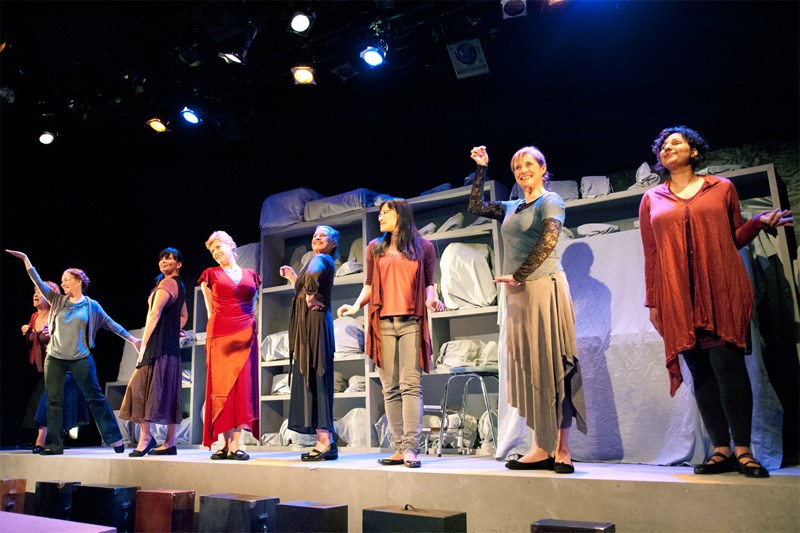Who’s your mother?
It should be a simple question, but often the identity of the woman known as mom is a mystery shrouded in polite quiet.
For 13 years, Marilyn Norry has been speaking against that quiet.
“The silence around mother’s lives is in every single culture,” Norry says. “It’s all over the world and it seems like it’s been there throughout history.”
My Mother’s Story is an effort to compile history by encouraging all sons and daughters – no matter what their relationship with their mother – to chronicle their mom’s life in 2,000 words.
“Being your mother was just one thing that she did,” Norry explains.
In 2004, Norry was in “the deep end of the mom pool,” when she noticed something startling. She was talking like her mother, “saying things I vowed I’d never repeat.”
While pondering that generational echo, Norry found herself at a wedding, “standing around, waiting for the food,” when a friend uttered a consequential phrase: “To know what I mean, you have to know my mother’s story.”
It was what she’d been waiting for.

In the book My Mother’s Story: The Originals, Norry describes her own mindset in that time of flux.
“I talked to God often, asking to be of use somewhere … I thought this would be film work, but I was open to other possibilities.”
Before her project had a name, Norry asked her Vancouver actor friends to take down their mother’s history.
She quickly noted many mothers are reduced to a “one-word descriptor, often coined in adolescence: she was kind, a saint, nasty, a drunk, tragic, crazy, lost, beautiful.”
But her friends emerged with a tale of a ballerina and knife-throwing, a chronicle of a “shocking flirt” who became the “belle of the barrage” in the Sindh desert. There were wonderful women who were terrible mothers, and wonderful mothers who were terrible women.
But while some women were writing “there were so many more just talking about writing,” Norry recounts.
She invited a group of daughters to her living room. Those who had already written read aloud to those who “hadn’t yet found the courage.”
That night led to scores of amateur historians eventually putting pen to paper.
The key is simplicity, according to Norry.
“Get the story of your mother’s life,” she says. “People can do this any time, all they need is the assignment and the deadline.”
Mother’s Day, she adds, is a “really good deadline.”
When it comes to the content of the stories, Norry is a proponent of the Joe Friday school of writing: “just the facts.”
Write in chronological order and “as fast as you can,” she advises.
Family stories can often unearth emotions and memories, but Norry reminds the writers that it’s not about them, it’s about their mother.
“The writer is just a footnote,” she says.
Taking down those family stories is essential for preserving the past, according to Norry.
“I remember television shows better than I remembered my family history,” she notes. “If it’s not written down those oral traditions are just going to be gone.”
The first North Vancouver writing workshop is slated for Tuesday at the North Vancouver City Library. Subsequent get-togethers are slated for April 18, 25 and May 2 at Presentation House Theatre. Workshops are also available online.
The North Vancouver workshops focus on children of Japanese descent after a recent attempt to bring My Mother’s Story to a seniors group in Japan failed after writers balked at telling potentially unpleasant stories of their mothers.
“Hopefully more Japanese stories written here, of mothers born in Japan or Canada, will demonstrate the benefits to Japan of recording women’s history before it is lost,” Norry states.
When complete, the project allows instant access to the past, Norry says, noting that it can also help communicate with future generations.
“It’s something that you can discuss with your children.”



